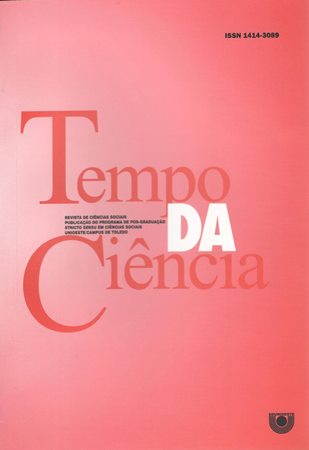CLIENTELISMO Y CONTROL SOCIAL EN UN PROGRAMA MATERNO-INFANTIL DE LA PROVINCIA DE BUENOS AIRES.
DOI:
https://doi.org/10.48075/rtc.v19i37.9102Keywords:
clientelismo – control social – programas sociales – mediadoresAbstract
Clientelism can be conceptualized as that social arrangement that is sustained ina dynamic and interactive relation of dependence between actors of different status thatadopts the characteristic of an exchange of votes or loyalties by goods or favors. Nevertheless,the social actors involved in these relationships often do not recognize them as bondsof domination due to the very existence of the exchange. The perspective of the socialcontrol allows us to realize of the subjective dimension of this process of naturalization. Bysocial control we understand a particular key of interpretation that takes into account theaspects that contribute to the production of what is allowed and what is forbidden, setting upstrategies to naturalize and normalize a given social order, whose contents and senses arenot pre-defined, but are the object of dispute. This article explores the links betweenpractices of informal social control, social policy and emergency of clientelar relations in thecase of the Plan Vida in the province of Buenos Aires. In this respect, the emergence and theinstrumentation of the Plan Vida were a relevant factor in the transformation from a denseclientelism towards a fine clientelism. Besides, this transition is juxtaposed with a greaterpresence of the social brokers in relation to the political brokers in the clientelar practices.Downloads
Published
How to Cite
Issue
Section
License
Aviso de Direito Autoral Creative Commons
Política para Periódicos de Acesso Livre
Autores que publicam nesta revista concordam com os seguintes termos:
1. Autores mantém os direitos autorais e concedem à revista o direito de primeira publicação, com o trabalho simultaneamente licenciado sob a Licença Creative Commons Attribution que permite o compartilhamento do trabalho com reconhecimento da autoria e publicação inicial nesta revista.
2. Autores têm autorização para assumir contratos adicionais separadamente, para distribuição não-exclusiva da versão do trabalho publicada nesta revista (ex.: publicar em repositório institucional ou como capítulo de livro), com reconhecimento de autoria e publicação inicial nesta revista.
3. Autores têm permissão e são estimulados a publicar e distribuir seu trabalho online (ex.: em repositórios institucionais ou na sua página pessoal) a qualquer ponto antes ou durante o processo editorial, já que isso pode gerar alterações produtivas, bem como aumentar o impacto e a citação do trabalho publicado (Veja O Efeito do Acesso Livre).
Licença Creative Commons
Esta obra está licenciada com uma Licença Creative Commons Atribuição-NãoComercial-CompartilhaIgual 4.0 Internacional, o que permite compartilhar, copiar, distribuir, exibir, reproduzir, a totalidade ou partes desde que não tenha objetivo comercial e sejam citados os autores e a fonte.

